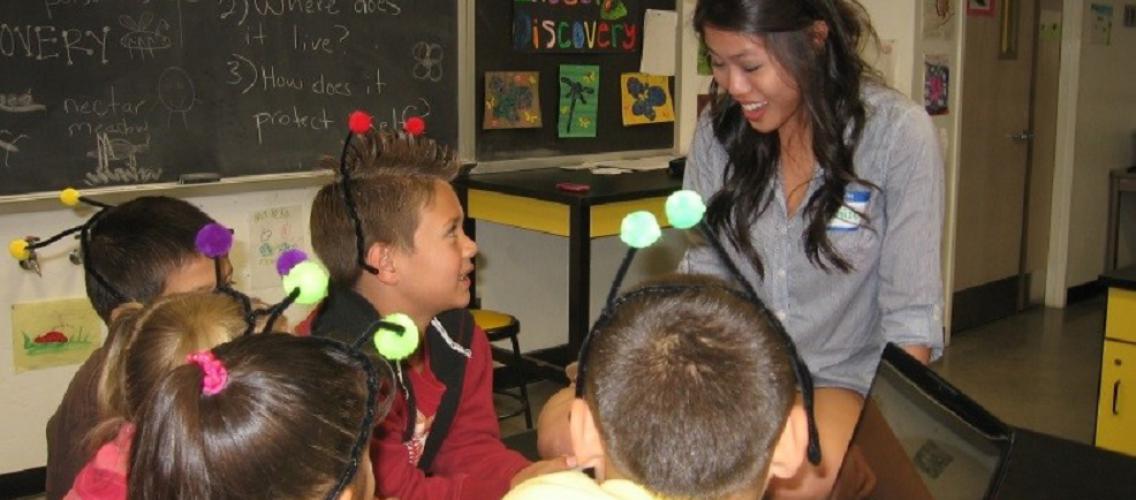
Insect Discovery Workshops
Come to the University of Arizona Flandrau Science Center for a morning of scientific discovery. Each workshop includes four inquiry-based activities that engage students in exploring scientific concepts such as diversity, adaptation and life cycles. Students work in small groups taught by university science students and lots of live insects!
Workshop Policies
- Two workshops are available on Tuesday and Wednesday mornings from February through the first week in May each year. Please register in advance.
- Workshop admission fees - $5 per student ($4 for Title I schools). Teachers and up to 5 chaperones are free. Planetarium shows and general museum exhibits are also available for additional admission fees.
- For more information on booking and pricing visit the Flandrau website.
- Each workshop can accommodate 10 to 30 students.Two workshops are offered at the same time.
- Workshops start at 9:30 and last about 2 hours.
- The activities are designed for 1st through 3rd graders. We are happy to make arrangements to accommodate students’ needs, such as ASL interpretation.
- To register for workshops, please go to the Flandrau Science Center link: https://flandrau.org/programs/discovery-programs/insect
- For more information about scheduling workshops, please contact Heather Parra. Phone: 520-626-1032, email: heatherparra@arizona.edu
For more Information about workshop content and activities: Kathleen Walker, krwalker@cals.arizona.edu, 520-626-2088
Activity Stations
Butterflies
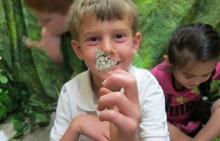
At this station, students learn how insects grow and spend some time with adult butterflies. Students enter a butterfly enclosure and coax live Painted Lady butterflies onto their fingers. Sitting quietly and observing are difficult skills for many young students, but butterflies are excellent teachers.
Lifecycles
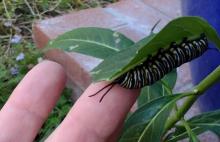
How do beetles and butterflies grow? Students explore metamorphosis playing with mealworms and the adult darkling beetles, then learn about how other insects develop.
Decomposers
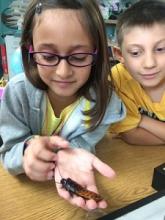
Insects and other animals have different roles in the environment depending on what they eat. In this station each student is able find and appreciate some of the many decomposer insects and relatives that eat dead plant material and help turn it into soil. Each student also can have fun digging in the dirt to find each friendly live decomposer. We also learn to appreciate that unsung hero of decomposition – the cockroach!
Adaptation
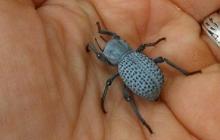
This station explores different adaptations insects have that help them survive in the environment. Our local insects and arthropods have incredible adaptations! Students explore this through our Blue Death-Feigning Beetles and Vinegaroons. The blueberry looking beetles play dead when disturbed and the Vinegaroons (actually related to spiders!) shake vinegar out of their tails! Students also play a game that demonstrates the advantage of camouflaged coloration and demonstrates how natural selection lead to this adaptation.

